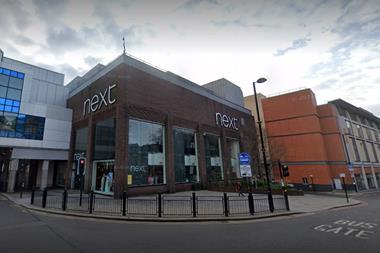“Age doesn’t matter, unless you are a cheese,” according to Luis Buñuel. I would argue otherwise.

Millennials - the always-on, digitally native and experience-hungry set born between the 1980s and noughties, get a lot of air time, with an awful lot of effort expended in trying to ascertain how to capture their spend. But it’s a little like trying to fill a bucket with a hole in it, because their wallets are actually rather empty.
For all their digital advantages and the choices available to them, millennials have been dealt a dud hand financially, so it’s a good job they value experience over things. Almost 40% of the NewRiver team are millennials and their contribution to our business is mighty, but their impact on the growth of UK retail spend? Far smaller than the media would have you believe.
Recent research we conducted dispels the common misconception that retail growth is all about millennials. Compared to ‘generation X’ at the equivalent life stage in 1995, in the 2010s the real hourly income for millennials is 13% lower and they earn 37.4% less in real terms.

Millennials have a lower disposable income than their elders and prefer experiences and services to products. The barrier to getting onto the property ladder for millennials is enormous as the average house price is 11 times their average annual salary, compared to the baby boomers - those born between 1946 and 1964 - for whom house prices were less than twice their salary when they were in their 20s.
Millennials are instead chained to the never-ending rental wheel, paying off the last of Generation X’s mortgages.
Millennials are chained to the never-ending rental wheel
They rent furnished flats and houses and thus have less need for things such as furniture or homeware. Their means to spend the little money they have left after their rent on transport has its challenges as the car ownership rate for millennials is half that of Generation X.
Research from GlobalData (formerly Verdict) shows that UK retail spending power lies with those in the grey pound category - the baby boomers . The 55+ age bracket is set to account for 57.5% of all store and click-and-collect sales growth in the next 10 years, and according to the GlobalData poll those in the 55+ age bracket are least likely to alter their shopping habits as a result of Brexit.
Grey pound
Let us not underestimate the political clout of the grey pound either. Of the 36% of millennials who turned up to vote in the EU referendum, the vast majority voted to remain, but the grey pound turned up in force and won the day.
And how do the 55- to 64-year-olds consume? They shop more frequently and consistently than their youngers and value and prefer the convenience and accessibility of retail parks and convenience-led shopping centres.
It is no coincidence that the research cites these facilities as growth categories in the next five years. Indeed, NewRiver’s portfolio is ideally positioned to cater for and absorb this spend, with 33 convenience-focused shopping centres, 22 retail warehouses and 46% of our 150 million annual shoppers aged 55 or above.
At NewRiver we believe that demographics are the underlying drivers of UK retail, rather than online or technology, which are by-products of demographic changes and evolving consumer behaviour. The key for retail operators and real estate owners is tapping into the demographic with pounds in their pockets.
They may not be on Tinder, Snapchat or Instagram, but the grey pound demographic has the time and the money to spend and a very important role in driving the growth of UK retail. In short - always follow the money!































No comments yet